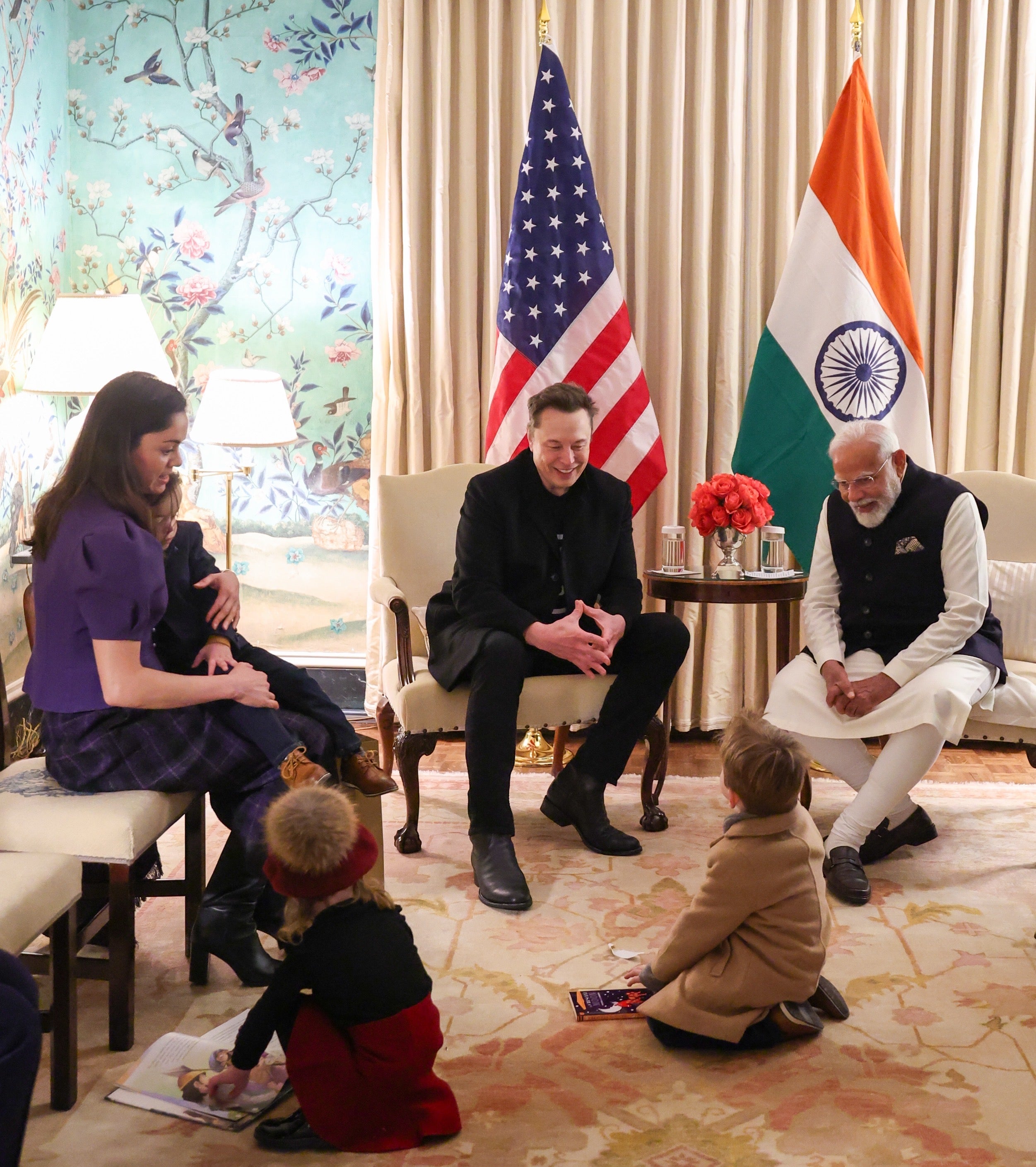Tesla Inc. has opened its first showroom in India, marking the vehicle maker’s long-anticipated debut in the world’s third-biggest automotive market.
Located in the Bandra-Kurla Complex, an upscale business center in the financial capital of Mumbai, the showroom will serve as Tesla’s flagship retail and experience outlet as the company introduces its EV lineup to Indian customers.
Tesla’s entry to India comes after years of delays and policy friction, marking a pivotal expansion in a fast-growing consumer base while global sales are plunging and the company faces challenges in its two core markets, China and the US.
Tesla launched its Model Y in India as the US automaker, grappling with slowing sales, bets on prospects in a country that company boss Elon Musk has long criticised for its high import tariffs. Tesla has begun accepting orders for its Model Y on the company website.
For India, Tesla’s entry signals rising investor confidence and strengthens its move towards clean mobility.
Maharashtra chief minister Devendra Fadnavis, while inaugurating the store, said: “This is not just the inauguration of an experience centre but a statement that Tesla has arrived, in the right city and state, that is Mumbai, Maharashtra. Mumbai stands for innovation and sustainability.”
Welcome to India @Tesla
— Devendra Fadnavis (@Dev_Fadnavis) July 15, 2025
Inaugurated Tesla’s first-ever Experience Centre in India at BKC, Mumbai, today.This is not just the inauguration of an Experience Centre ; it’s a powerful statement—Tesla is here, and it’s chosen the right city and the right state: Mumbai, Maharashtra!"… pic.twitter.com/4ilfAHCEoO
With deliveries estimated to start from the third quarter, Tesla is targeting a niche electric vehicle segment in India that accounts for just 4 per cent of overall sales in the world's third-largest car market.
The base price of the Y model is Rs6.78m or $79,000 for the long-range, rear-wheel drive vehicle, according to a presentation by the company. By comparison, the price tag is around $44,990 in the US without a federal tax credit.
The government wants to change that and increase the electric vehicle share to 30 per cent by 2030. Sales of Tesla electric cars fell sharply from April to June as boycotts over Musk’s political views continued, keeping buyers away.
Tesla will compete mainly with German luxury giants such as BMW and Mercedes-Benz rather than domestic mass-market EV players such as Tata Motors and Mahindra.

The company will import cars into a country where tariffs and related duties can exceed 100 per cent, driving up the price for consumers.
Grappling with excess capacity in global factories and declining sales, Tesla has adopted a strategy of selling imported vehicles in India, despite the duties and levies.
The EV maker has long lobbied India for lower import tariffs on cars, and prime minister Narendra Modi's officials remain in talks with US president Donald Trump's administration to lower the levies under a bilateral trade deal.
Musk invited Indians in April 2016 to preorder the upcoming Tesla Model 3. Several customers placed an order but the cars never arrived and the booking amount had to be refunded.
Despite his earlier enthusiasm, in 2019 Musk expressed concern in a post on his social media platform X that import taxes could double prices of Tesla cars, making them “unaffordable”.
Tesla pressed Indian authorities to cut import taxes on EVs to be able to test the local market, but New Delhi wanted Tesla to set up manufacturing facilities so a comprehensive policy could benefit all the players in the sector.
The dynamics changed after Modi and Musk met in the US in February during the prime minister’s state visit.
Chinese court sentences a Japanese man to more than 3 years in prison on espionage charges
UN council authorizes continuing vigilance of attacks by Yemen's Houthi rebels on Red Sea shipping
Tesla culls top executives after months of turmoil and sales slump
Inflation latest: June CPI figures show surprise rise with fuel and food costs up
Analysis finds devolved tax powers could add £4 billion for local services
Davey proposes major shake-up of green energy contracts to ‘slash bills’







